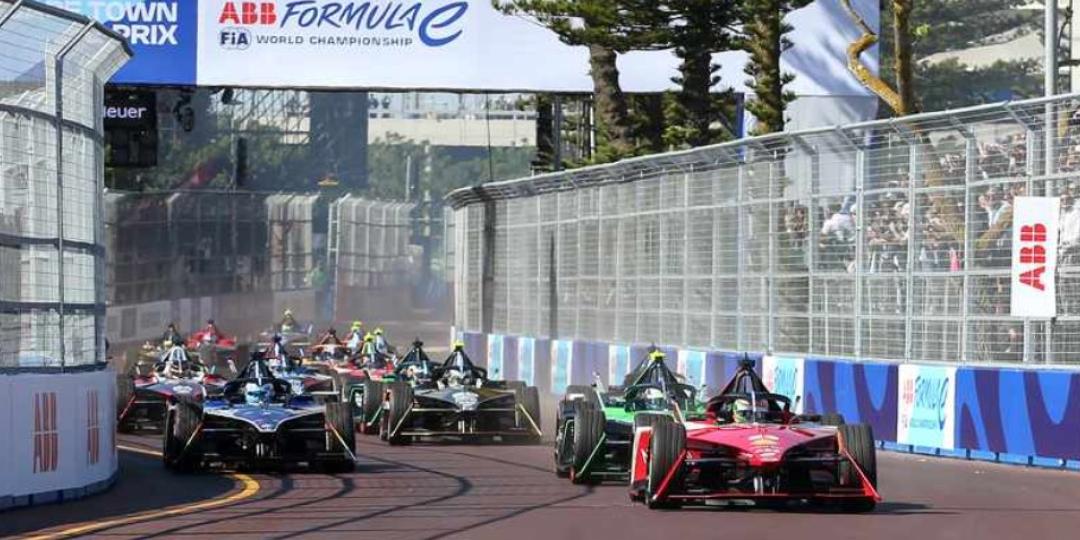The success of the Formula E in Cape Town last month is an indication that the sports tourism industry in South Africa is growing at a rapid pace, contributing hugely to the country’s economy.
The first ever Formula E in sub-Saharan Africa was “a big success” according to event promoter Iain Banner, with high demand resulting in all 25 983 tickets being sold out days before the race.
“There was no wallpapering going on, this was genuine demand. I always had confidence we would sell out, others doubted we would, but we did in the end. My target for next year is 40 000 [spectators]. I believe quite easily we can sell 40 000,” Banner said.
Major contributor to the economy
According to Future Market Insights, the value of the South African sports tourism market was estimated at US$3.67m for 2022.
Illana Pereira, COO of the Sports and Leisure division of Tourvest Destination Management, said the sports tourism industry in South Africa was fast becoming a major contributor to the global US$7bn sports industry, with the country hosting more and more major sporting events.
“Major events being hosted in South Africa contribute to the rise in tourism, which not only means an influx of tourists from other countries around the world to enjoy the sporting event but it also provides opportunities for various other industries which are integrated and complementary i.e. hospitality, logistics, restaurants, activities etc. to take advantage of all guests in country,” Pereira said.
In fact, the Formula E contributed R2.13bn (€125m) to South Africa’s economy, taking into consideration all services offered to travelling guests.
Rosemary Anderson, National Chair for hospitality association FEDHASA, said the enormity of the benefits of sporting events in the country was totally undervalued and under-appreciated.
“The economic benefits to towns and cities hosting sporting events, literally touches on everything from filling stations selling more petrol to informal traders doing better business, and to the obvious significant benefits to traditional hospitality businesses,” she said.
Anderson added that sports tourism was a great avenue to entice travellers back for future visits.
“Sport tourists would most likely not ever be visiting our shores, but now that they [Formula E travellers] have had a taste of our magnificent offerings, we have a good chance of having them visit us again. South Africa has one of the highest repeater tourism rates in the world, which is a significantly positive reflection on our tourism offerings,” she said.
Cape Town leading the way
Cape Town has enjoyed the most success of any city in South Africa when it comes to the hosting of major sporting events in recent years.
Apart from the Formula E, the Mother City is responsible for bringing big sporting competitions to country – many of them hosted on the African continent for the first time – such as the Rugby World Cup Sevens last year, the Women’s T20 Cricket World Cup last month, and the Netball World Cup coming in July/August.
That is not to mention the annual Cape Town Marathon and HSBC World Rugby Sevens Series.
“Cape Town is leading the way in marketing the city as a top destination for events in South Africa and the world. The proactive, energetic, focused and dedicated approach by Cape Town is the reason that the city is securing more events than other cities in the country – who are similarly competing for,” Anderson said.
Alderman JP Smith, City of Cape Town Mayoral Committee Member for Safety and Security, said hosting new events such as Formula E showcased the city, the country, and the continent’s capabilities in terms of eventing and hospitality.
“The majority of sporting events hosted in our city attract national and international athletes as well as spectators who travel to Cape Town. As an offshoot of their success, events become a great catalyst for growth, especially for the tourism and hospitality sector. These events are also important in ensuring that Cape Town remains top of mind as a competitive international events destination of choice,” said Smith, concluding that Cape Town anticipated sporting events to have an even bigger role to play in 2023.
Tourism tips for marketing major sporting events
Stewart Smith, MD Middle East and Africa at travel marketing platform Sojern, advises tourism businesses to get in front of sports tourists and offer up its services and unique selling points ahead of their arrival.
He suggests that travel-intent data could be used to entice travellers who might still be on the fence.
“Ahead of big sporting events, the hospitality industry should be focusing on using insights and data to better reach travellers and drive direct bookings,” Smith said.
He added that hotels that were fully booked should continue to maintain their digital marketing presence by sharing details of amenities, such as restaurants, pools, or spas, enticing guests to spend their free time at the hotel.
Smith concluded that a good digital marketing toolbox for sporting events should consider these four crucial factors:
- An 'always-on' marketing strategy that optimally focuses on traveller intent at the right moment, wherever they are across their planning and booking journey.
- Access to insights and leveraging existing data through a multichannel approach that will assist in identifying travellers wherever they are in the digital booking landscape.
- Finding the right travellers for your business ahead of any sporting event through travel-intent data so that you can target audiences and marketing channels to meet the intent.
- Prioritising well-designed advertisements to grab the attention of your target audience and increase chances of direct bookings.
























